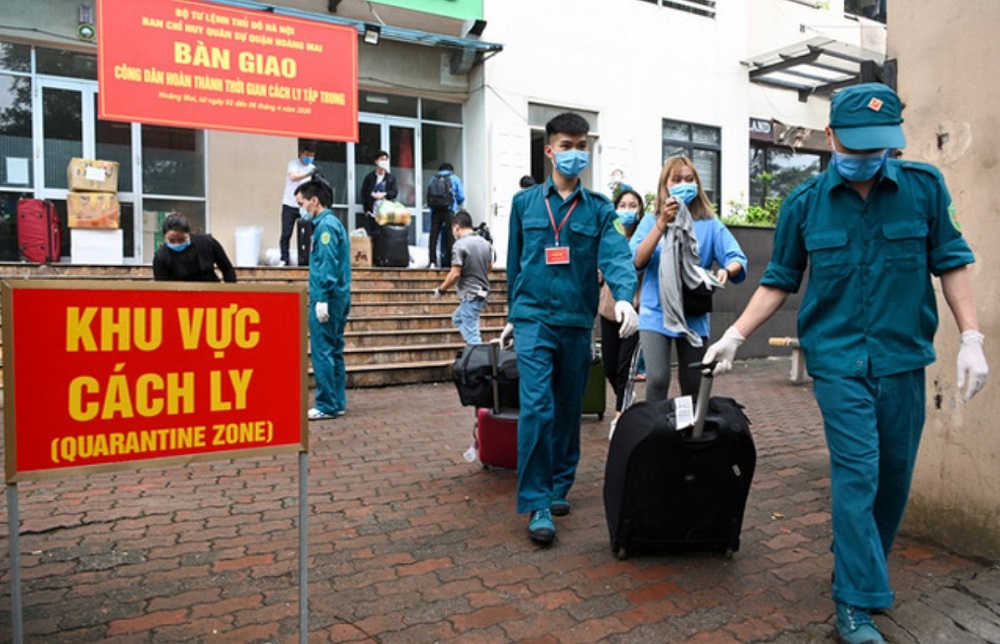Vietnam lowers quarantine to 14 days
Shortening quarantine time is part of efforts to ease burden of centralized facilities and facilitate economic activities.
Vietnam’s Ministry of Health has shortened the quarantine period for entrants and first-generation contacts of index cases (F1) to 14 days from 21 days after consulting with international experts.
The ministry said it made the decision based on recommendations by the World Health Organization and the US Center for Disease Control and Prevention (CDC).
| In a quarantine zone in Hanoi. Photo: VGP |
The cut is an expectation of foreign organizations and businesses in Vietnam, including the American Chamber of Commerce (AmCham) in Hanoi. In its survey conducted on May 21-22, the long quarantine period ranked among the top five challenges for bringing in people from outside Vietnam.
AmCham’s executive director Adam Sitkoff said a lengthy quarantine period should not be applied for vaccinated businesspeople to facilitate foreign investment.
Vietnam had increased the quarantine period to 21 days since May 5 as a strengthened safety precaution following a spike in Covid-19 infections.
People are given two options including centralized quarantine and hotel quarantine. The quarantine centers are managed by the army and the Government of Vietnam charged isolated people for meals but no other kind of fees. In the previous waves of the pandemic, the Government offered free-of-charge quarantine for all.
Reducing hospitalization
In the same move, the ministry also reduced treatment time in hospitals for Covid-19 patients from 14 days to 10 days if they are asymptomatic.
Vietnam made the decision after a study showed that up to 70% of around 20,000 patients did not have symptoms.
Asymptomatic patients will be tested on the ninth and 10th day of hospitalization. If they test negative or test positive with low viral load (a low cycle threshold (CT) of 30 or higher), they can be discharged and isolate themselves at home for 14 days. (Viral load, also known as a viral burden, is a numerical expression of the quantity of virus in a given volume of fluid. The cycle threshold value indicates how much virus an infected person harbors).
In cases detected among the public, if people test positive but with a CT of 30 or higher, they will be sent to clinic stations to be tested for the second time in 24 hours, and if the results are the same, they will be discharged and should isolate themselves at home for 14 days.
Health workers and the two above groups are subject to home treatment.
In addition, the ministry suggested home quarantine of F1 in Ho Chi Minh City to ease the burden of concentrated quarantine facilities and avoid cross infections. After the pilot period, which will last until July 19, the ministry will consider the massive application nationwide.
The home quarantine will be imposed for F1 with negative antigen rapid testing for Covid-19, those who had close contact with confirmed cases while wearing face masks, the elderly aged above 60, children, pregnant women, people with disabilities, among others.
Under the ministry’s guidelines, F1 under home quarantine needs to be tested at least five times which fall on the 1st day, the 7th, the 14th, the 20th, and the 28th day of the quarantine period.
Currently, Ho Chi Minh City, the epicenter, has more than 120,000 people in quarantine, including more than 14,000 in centralized facilities.












